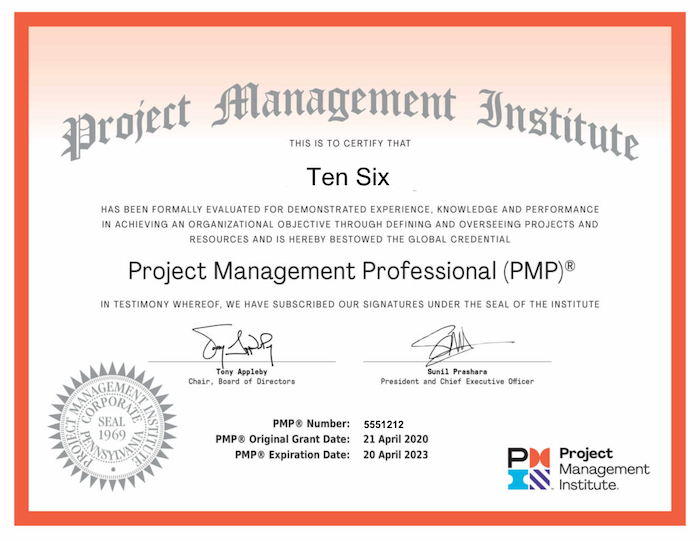
Are you interested in a career that involves managing projects and working with teams? If so, then project management could be the perfect fit for you. But what does it take to make it as a successful project manager? What skills do you need, how much experience is required and what are some of the certifications available to help advance your career path?
We’ll discuss all these topics (and more) in our project management career path guide. So read on if this field interests you!
Overview of the Project Management Career Path
Definition of Project Management
Project management is the application of knowledge, skills, tools and techniques to plan and execute activities in order to meet or exceed stakeholder needs and expectations from a project. It involves managing time, cost, scope, quality, risk and other factors that are necessary for successful project completion. Project managers are responsible for overseeing all aspects of a project from start to finish.
Types of Project Managers
-
Technical project managers who manage projects related to software development or engineering.
Business analysts who analyze data related to projects. - Program managers who oversee multiple projects at once.
- Operations managers who coordinate daily tasks within an organization.
- IT managers who oversee technology-related initiatives.
- Financial analysts who track budgets associated with projects.
- Marketing managers who create campaigns around products or services being developed by the company.
The Benefits of a Career in Project Management
A career in project management offers many benefits. One is job security due to its importance across industries ranging from healthcare to construction. There’s also potential for growth as organizations rely more heavily on efficient processes enabled by strong PMs.
Furthermore, higher salaries than non-PM roles are offered due to their specialized skill set. And, in some cases, there’s flexibility in terms of location as some jobs can be done remotely. Moreover, increased problem solving abilities can be developed through practice working on different types of projects.
There’s also the opportunity for creativity when developing solutions tailored specifically for your client’s needs. A career in project management can provide an opportunity to work on challenging and rewarding projects, with the potential for significant personal growth.
Key Takeaway: Project management is a highly rewarding career that offers job security, potential for growth, higher salaries than non-PM roles, flexibility in terms of location and the opportunity to develop problem solving abilities. Key benefits include: • Job security • Potential for growth • Higher salaries • Flexibility in terms of location • Increased problem solving abilities
Qualifications and Skills Needed for a Career in Project Management
Education Requirements
A career in project management typically requires a bachelor’s degree in business, engineering, or a related field. However, more and more employers are accepting candidates with an associate’s degree or relevant experience. In addition to formal education, aspiring project managers should consider taking courses such as those offered by the PMI (Project Management Institute) and others, that will help you better understand the fundamentals of successful project management.
Technical Skills Required
Project managers must have excellent technical skills to be able to manage complex projects efficiently. They need to be proficient in using various software applications such as Microsoft Office Suite, Google Docs/Sheets/Slides etc., as well as specialized tools like Primavera P6 and Microsoft Project for scheduling tasks and resources on projects. They also need strong analytical skills so they can interpret data accurately and make sound decisions based on it.
Communication Skills
Good communication is essential for successful project management since PMs must interact with both internal and external customers throughout the life cycle of the project. They need to be able to explain complex concepts clearly and concisely both verbally and in writing.
Time Management Skills
Time management is also a key skill, as PMs often juggle multiple tasks while staying within time, budget and quality constraints. In addition, managing staff, project issues and risks, communications and reporting can be quite time consuming.
Problem Solving Skills
Problem-solving abilities are necessary so they can anticipate potential issues before they arise, and come up with solutions quickly if any do occur during the course of a project’s execution phase.
Leadership Skills
Lastly, leadership qualities are important since PMs must motivate their teams towards achieving common goals together effectively without compromising quality standards or deadlines set by stakeholders involved in the process.
Having the right qualifications and skills is essential for a successful career in project management. With the right combination of technical and soft skills, you can be well on your way to becoming an effective project manager.
Key Takeaway: Project managers must have a combination of technical, communication, time management and problem-solving skills as well as leadership qualities in order to be successful.
Experience Needed to Advance in the Field of Project Management
Entry Level Positions and Responsibilities
Entry level project management positions are typically filled by individuals who have recently graduated from college or those with limited experience in the field. At this level, responsibilities may include assisting in the creation of project plans, supporting project administration tasks, tracking progress and reporting on results. Project managers at this level will also be expected to develop an understanding of the organization’s processes and procedures as well as its goals and objectives.
Mid-Level Positions and Responsibilities
Mid-level project management positions require more experience than entry-level roles. Individuals in these roles must demonstrate a greater knowledge of their organization’s business operations as well as its products or services. They should also possess strong problem solving skills that enable them to identify issues quickly and develop solutions for them efficiently. In addition to developing project plans, mid-level PMs will be responsible for leading teams through successful completion of projects while adhering to deadlines set by upper management.
Senior-Level Positions and Responsibilities
Senior level Project Managers must possess extensive experience in the field, as well as strong leadership capabilities to effectively manage complex projects from start to finish without compromising quality or accuracy. They also serve as mentors for junior team members and provide guidance on best practices within their organization’s policies and procedures framework.
Additionally, senior PMs may be called upon to offer input into strategic planning initiatives such as budgeting decisions or resource allocation strategies based on their expertise in the industry sector they work within. Having a comprehensive understanding of project management and earned value management is essential to advancing in the field.
Key Takeaway: Project managers at all levels must possess strong problem solving skills, knowledge of their organization’s processes and goals, leadership capabilities, and the ability to mentor junior team members. Entry-level PMs will focus on project administration, planning and tracking progress while mid-level PMs will lead teams through successful completion of projects. Senior level PMs are expected to manage complex projects from start to finish as well as provide input into strategic planning initiatives.
Professional Certifications Available for Project Managers
 The Project Management Professional (PMP) certification is the most widely recognized and sought-after credential for project managers. It is administered by the Project Management Institute (PMI). The PMP exam tests a candidate’s knowledge of project management processes, principles, and best practices.
The Project Management Professional (PMP) certification is the most widely recognized and sought-after credential for project managers. It is administered by the Project Management Institute (PMI). The PMP exam tests a candidate’s knowledge of project management processes, principles, and best practices.
To be eligible to take the exam, candidates must have either a secondary degree plus 5 years of experience in leading projects or a 4-year degree plus 3 years of experience in leading projects. Once certified, PMPs are required to earn 60 professional development units every three years to maintain their certification status. 1 hour of continued education is equal to 1 PDU.
Other Professional Certifications Available for PMs
In addition to the PMP certification, there are other certifications available that focus on specific areas of project management. These include:
- Agile Certified Practitioner (ACP), which focuses on agile methodologies such as Scrum and Kanban;
- Certified Associate in Project Management (CAPM), which provides an introduction into basic concepts related to managing projects successfully.
- Program Management Professional (PgMP), which focuses on program management involving overseeing multiple related projects with common goals within an organization.
Each of these certifications has its own eligibility requirements, so it’s important for potential applicants to research each one before deciding which one is right for them. Gaining the necessary certifications can help project managers stay competitive in the job market and advance their career.
![]()
“Ready to take your project management career to the next level? Get certified with PMP, ACP, CAPM or PgMP and become a #ProjectManagementPro! #PMCertification Click To Tweet
![]()
![]()
![]()
![]()
![]()
Earning Potential for a Career in Project Management
Project management is a rewarding career path that offers many opportunities for growth and advancement. It’s also one of the higher paying professions, with salaries varying based on experience and position level.

Average Salaries by Position Level
Entry-level project managers typically earn between $50,000 to $70,000 per year depending on the industry they work in. With additional experience and certifications, these professionals can expect to make up to $90,000 annually. Mid-level project managers usually make around $80,000-$120,000 per year while senior-level positions can bring in upwards of $140,000 or more each year.
Factors That Impact Salary Potential
The salary potential for a career in project management is largely determined by several factors such as years of experience working in the field, education level, professional certifications held, size and scope of projects managed, knowledge of the industry sector worked in, geographic location, technical skillset possessed, soft skills demonstrated during job interviews/presentations etc., and any other special qualifications or achievements earned throughout their career journey thus far. All these elements combined help determine an individual’s earning potential when it comes to project management roles.
A career in project management can offer a good salary and rewarding opportunities. Knowing the factors that impact salary potential is key to maximizing your earning potential in this field.
![]()
![]()
![]()
![]()
![]()
“Project management is a rewarding career path that can take you places! With the right experience, certifications and skillset, you could be earning up to $140K or more each year. #PMP #CareerGoals #ProjectManagement” Click To Tweet
![]()
![]()
![]()
![]()
![]()
Conclusion
A career in project management can be rewarding and lucrative. It requires dedication, hard work, and the right qualifications and skills to succeed. With experience comes greater responsibility and higher earning potential.
Professional certifications are available for those looking to further their knowledge of project management techniques and processes. If you’re interested in exploring a project management career path, take some time to research what it takes to get started on this exciting journey!
With this knowledge at your disposal, it’s time to start making strides towards becoming an expert in the art of managing projects!







